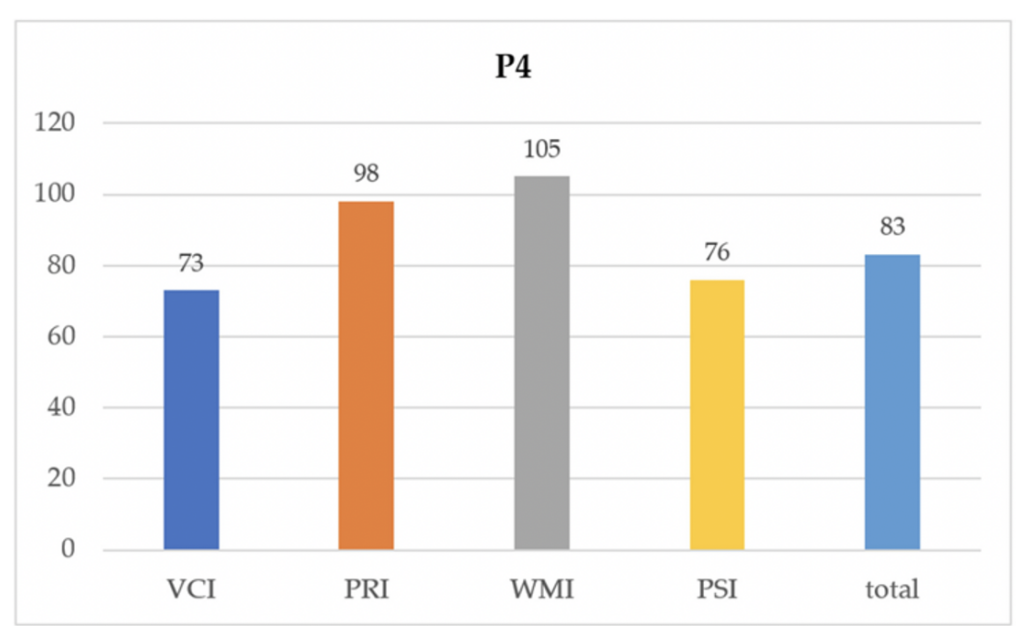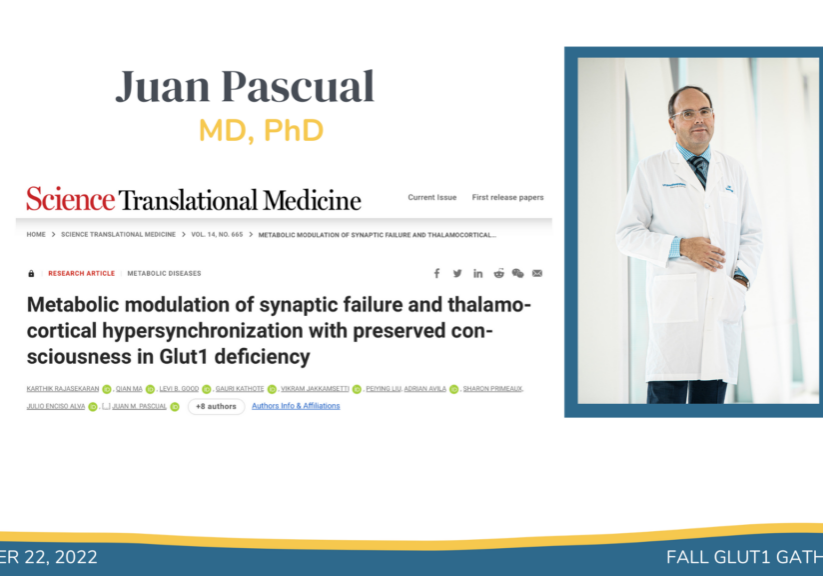Updates from Dr. Joerg Klepper
Hello Glut1 Deficiency community!
This month I would like to share with you that the Glut1 Deficiency Foundation’s executive director Glenna Steele and I will attend the European Glut1 conference. It will take place June 14-16 in the beautiful city of Aschaffenburg Germany, and it’s hosted by none other than Dr. Joerg Klepper. There is a wonderful group of speakers lined up including Dr. Joerg Klepper, Dr. Michel Willemsen, Dr. Juan Pascual, Dr. Umrao Monani, Dr. Eric Kossoff, Dr. Mackenzie Cervenka, Dr. Jong Rho and Glenna Steele among others. We are thrilled to participate in this wonderful gathering and to meet other Glut1 families in Europe, as well as researchers and clinicians who work with Glut1 Deficiency patients in different hospitals across Europe!
In this edition of Science with Sandra I would like to highlight a recent publication by Dr. Joerg Klepper and his team at the Children’s Hospital in Aschaffenburg, Germany, the Department of Special Education and Therapy in Language and Communications disorders at the Julius Maximilian University in Germany and the Children’s Hospital and Polyclinic Wuerzburg in Germany. The title of their publication is: “Timing of the Ketogenic Dietary (KTD) Introduction and Its Impact on Cognitive Profiles in Children with Glut1-DS- A Preliminary Study”.
The aim of the study was to characterize cognitive abilities in patients with Glut1 Deficiency following the ketogenic diet therapy (KDT) with special emphasis on speech performance.
In recent years there has been an increase in the number of studies in patients with Glut1 Deficiency, however, psychological, educational and linguistic communicative features are not widely understood. It is known that the clinical features of this disorder are complex and that they change with age. Some of the characteristics include variable manifestations of a global psychomotor developmental disorder, seizure-like manifestations, and complex movement disorders. As the pediatric patients get older, global developmental delay and movement disorders such as spasticity, ataxia and dystonia, among others develop. In addition, it has been reported that Dysarthria is common in the majority of patients with Glut1 deficiency, and this can be accompanied by speech incoherence and interference with intelligibility of speech.
In regards to cognitive impairment in Glut1 Deficiency, it has been reported that it ranges from learning disorders to severe intelligence deficits, and that the degree of impairment correlates with the overall severity of the disease.
The KDT is the standard of treatment for Glut1 Deficiency and although it has many benefits for the patients for whom the KDT works, it has been reported by patients and families in our community, that it lacks effectiveness with regards to speech, cognition and movement disorders, mostly in patients 13 years old and older, as shown in our Collective Voices in Glut1 Deficiency Project.
Some studies have looked at cognitive profiles of Glut1 Deficiency patients before and after treatment with KDT; however, the possible influence of speech motor competencies or limitations of the test on the patients’ test performance has not been considered in those studies.
The study By Dr. Klepper et al. aimed to investigate and describe in detail the cognitive performance profiles assessed using the Wechsler Intelligence Scale (WISC-IV). The influence of KDT on overall intelligence quotient (IQ) was examined, and the data were analyzed to determine the specific language and speech features in Glut1 Deficiency.
The methods for this study included the participation of 8 Glut1 deficiency patients who are followed up at the Children’s Hospital in Aschaffenburg, Germany. The patients’ age range was 7-15 years old, patients presented different symptoms and different types of SLC2A1 variants as seen in the table below.

Barthold, M. 2023
All patients were administered neuropsychological testing as well as the Wechsler Intelligence Scale for Children 4thedition.
The results for this study confirmed the heterogeneity of the cognitive abilities of Glut1 Deficiency patients. Many of the patients showed relatively individual strength or weaknesses in individual intelligence. Three of the participants showed statistically significant differences, which were clinically meaningful, between the index IQ scores of language comprehension (VCI), perceptual logical thinking index (PRI), working memory index (WMI) and processing speed index (PSI).
Due to the heterogeneity of the cognitive abilities of the participants, the correlation with the KDT and total IQ score was not informative; therefore, the research team decided to assess the influence of the KDT individually for each of each subdomain of intelligence represented by these indices: VCI, PRI, WMI and PSI. The results showed a differential effect of the time when the KDT was started and the length of the treatment with relation to the total IQ scores and the individual subdomains of intelligence. According to the results it was observed that only PSI and PRI have a correlation with the time of KDT initiation. The earlier the treatment was started, the better the outcome of these two subdomains. On the other hand, WMI and VCI showed a weaker correlation with the time of treatment initiation.
Discussion: In this study, Dr Klepper and his team assessed 8 Glut1 deficiency patients in regard to their characterization of the cognitive performance. The assessment included the evaluation of their linguistic abilities, as well as the possible negative impact of speech motor impairments on performance in subtests.
Their results support previous findings that patients with Glut1 Deficiency show a wider range of cognitive performance levels and IQ scores below the normal range. Additionally, their results show that patients with Glut1 Deficiency have a better perceptual language than expressive language. It is important to highlight that Dr. Klepper and his team mentioned that the total IQ scores do not adequately represent the different performances in the individual cognitive domains because they are calculated based on the heterogeneous index profile, and that it cannot be considered as a reliable parameter for participants like the Glut1 Deficiency patients who participated in their study. As an example of this, they showed the profile of one of the patients participating in the study, see below.

Barthold, M. 2023
As you can see, this patient showed a relatively low performance in language comprehension (VCI) and processing speed index (PSI), while a good performance in perceptual logical thinking (PRI) and working memory (WMI) indices. The total IQ score does not reflect the actual cognitive performance, while the individual IQ index values represent a more meaningful parameter on the specific performances.
Another important aspect to point out is that Dr. Klepper and his team mentioned that motor deficits present in Glut1 Deficiency patients can have a disruptive effect on test performance in tests with high speech motor demands, when most question are testing the expressive language, for example when testing the language comprehensive index (VCI).
The conclusions: The team led by Dr. Klepper concludes that the “the limited significance of the total IQ score and individual index IQ scores resulting from the variable access skills in patients with Glut1DS requires an alternative methodological approach to intelligence diagnostics for this patient group”. It is important to consider cognitive subdomains individually and to take into account the effects of expressive language and/or hand motor symptoms on test performance.
Other conclusions in this study, are that the positive effects of the KDT were more meaningful when testing individual indices with a lower expressive language demand, such as PRI, than for the other indices.
Finally, they suggest that future studies should include a larger patient population to obtain better results of the effects of the KDT on cognitive profiles in children, with Glut1 Deficiency.
This pilot study provided the base for a prospective study of speech impairment in Glut1 Deficiency done by the same investigators in 2022/23 – the study has been completed; results are pending.
We thank Dr. Klepper, his team and all of his collaborators who made this publication possible, and who provided a starting point to learn more about speech language and cognition in Glut1 Deficiency, in addition to providing ideas to develop strategies that will enable clinicians to perform more meaningful cognitive evaluations for the patients in our community. Results from future studies will not only provide important information, but could possibly be used as a way to help determine the effectiveness of future treatments being developed for our community.
Sandra Ojeda, PhD
Science Director of the Glut1 Deficiency Foundation



